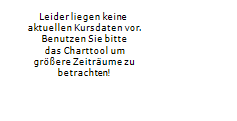
Stallergenes Greer, a biopharmaceutical company specialising in allergen immunotherapy (AIT), today announced that the Committee for Medicinal Products for Human Use (CHMP) of the European Medicines Agency (EMA) provided a positive opinion for the extension of the existing indication for Palforzia® (defatted powder of Arachis hypogaea L., semen (peanuts))to the treatment of toddlers (ages 1 to 3) with a confirmed diagnosis of peanut allergy. If the extension indication is granted by the European Commission, Palforzia® will become the first EMA approved oral immunotherapy (OIT) treatment for toddlers living with confirmed peanut allergy.
Palforzia® is designed to gradually increase the body's ability to tolerate small amounts of peanut (desensitisation) through carefully controlled and supervised initial dose escalation, up-dosing and maintenance. The extension of the indication, with adjustment of contraindications, would enable treatment to be initiated at an earlier age, thus offering young children and their families the opportunity to reduce the risk of severe allergic reactions from accidental exposure to peanut allergens.1
The CHMP recommendation is under review by the European Commission which is responsible for the grant of central marketing authorisations in the European Union. If granted, the marketing authorisation would cover all 27 European member states and the three European Economic Area states (Iceland, Liechtenstein and Norway). In July 2024, the U.S. Food and Drug Administration (FDA) approved the extension indication of Palforzia® for use in toddlers.
The regulatory submission is based on data from the Phase 3 POSEIDON (Peanut Oral Immunotherapy Study of Early Intervention for Desensitization) study that was published in the New England Journal of Medicine Evidence in 2023. The study evaluated the efficacy and safety of Palforzia® in peanut-allergic children aged 1 to 3 years old, meeting all its primary and secondary efficacy endpoints and demonstrating a favourable safety profile.2
"The positive recommendation of Palforzia® marks a significant step forward for younger children with peanut allergy, as well as for their families. This milestone builds on Stallergenes Greer's long-standing commitment to delivering innovative solutions for the benefit of allergy sufferers," says Elena Rizova, Chief Medical Officer, Stallergenes Greer
As Stallergenes Greer advances efforts to broaden access to Palforzia®, the company remains committed to offering solutions tailored to patient needs. With a comprehensive portfolio which includes oral immunotherapy for food allergy, tablet and liquid sublingual solutions, and subcutaneous formulations for respiratory and insect venom allergies, Stallergenes Greer is paving the way for personalised, precision-based allergen immunotherapy.
ABOUT PALFORZIA®
Palforzia® is indicated by the European Medicine Agency (EMA) in the European Union, by the Medicines and Healthcare products Regulatory Agency (MHRA) in the U.K., and by Swissmedic in Switzerland for the treatment of patients aged 4 to 17 years with a confirmed diagnosis of peanut allergy. Palforzia® may be continued in patients 18 years of age and older. Palforzia® should be used in conjunction with a peanut-avoidant diet.
Palforzia® is also approved by the U.S. Food and Drug Administration (FDA) for ages 1-17 years for the mitigation of allergic reactions, including anaphylaxis, that may occur with accidental exposure to peanut. The treatment is approved for use in patients with a confirmed diagnosis of peanut allergy; Initial Dose Escalation may be administered to patients aged 1 through 17 years. Up-Dosing and Maintenance may be continued in patients 1 year of age and older. Palforzia is to be used in conjunction with a peanut-avoidant diet. Limitation of Use: Not indicated for the emergency treatment of allergic reactions, including anaphylaxis.
Stallergenes Greer acquired the rights to Palforzia in September 2023.
ABOUT POSEIDON PHASE 3 STUDY
POSEIDON (Peanut Oral Immunotherapy Study of Early Intervention for Desensitization, clinicaltrials.gov number NCT03736447) is an international, randomized (2:1), double-blind, placebo-controlled Phase 3 study that evaluated the efficacy and safety of Palforzia® in peanut-allergic children aged 1 to 3 years of age in North America and Europe.
The POSEIDON study was completed by Aimmune Therapeutics, part of Nestlé Health Science before Nestlé divested Palforzia® to Stallergenes Greer in September 2023.
Enrollment was based on several entry criteria, including a documented clinical history of peanut allergy, positive skin prick tests and/or elevated blood levels of peanut antibodies, and dose-limiting symptoms after consuming single doses of peanut protein >3 to =300 mg in a positive double-blind, placebo-controlled food challenge.
In POSEIDON, patients underwent a dose-escalation period of approximately 22 weeks to reach a dose of 300 mg per day of Palforzia® or placebo, then continued that dose for approximately six months. At the end of the trial, patients underwent an exit double-blind, placebo-controlled food challenge (DBPCFC).
ABOUT STALLERGENES GREER INTERNATIONAL AG
Headquartered in Baar (Switzerland), Stallergenes Greer International AG is a global healthcare company specialising in the diagnosis and treatment of respiratory, food and venom allergies through the development and commercialisation of allergen immunotherapy products and services. Stallergenes Greer International AG is the parent company of Greer Laboratories, Inc. (whose registered office is in the United States) and Stallergenes SAS (whose registered office is in France). For more information, visit www.stallergenesgreer.com.
1 Summary of Product Characteristics. Rev 06 Sep 2024
2 https://evidence.nejm.org/doi/full/10.1056/EVIDoa2300145
Palforzia®: 2024, Société des Produits Nestlé S.A. or its affiliates
View source version on businesswire.com: https://www.businesswire.com/news/home/20241201331216/en/
Contacts:
Communications
Catherine Kress
Tel: +33 (0)1 55 50 26 05
Email: catherine.kress@stallergenesgreer.com

